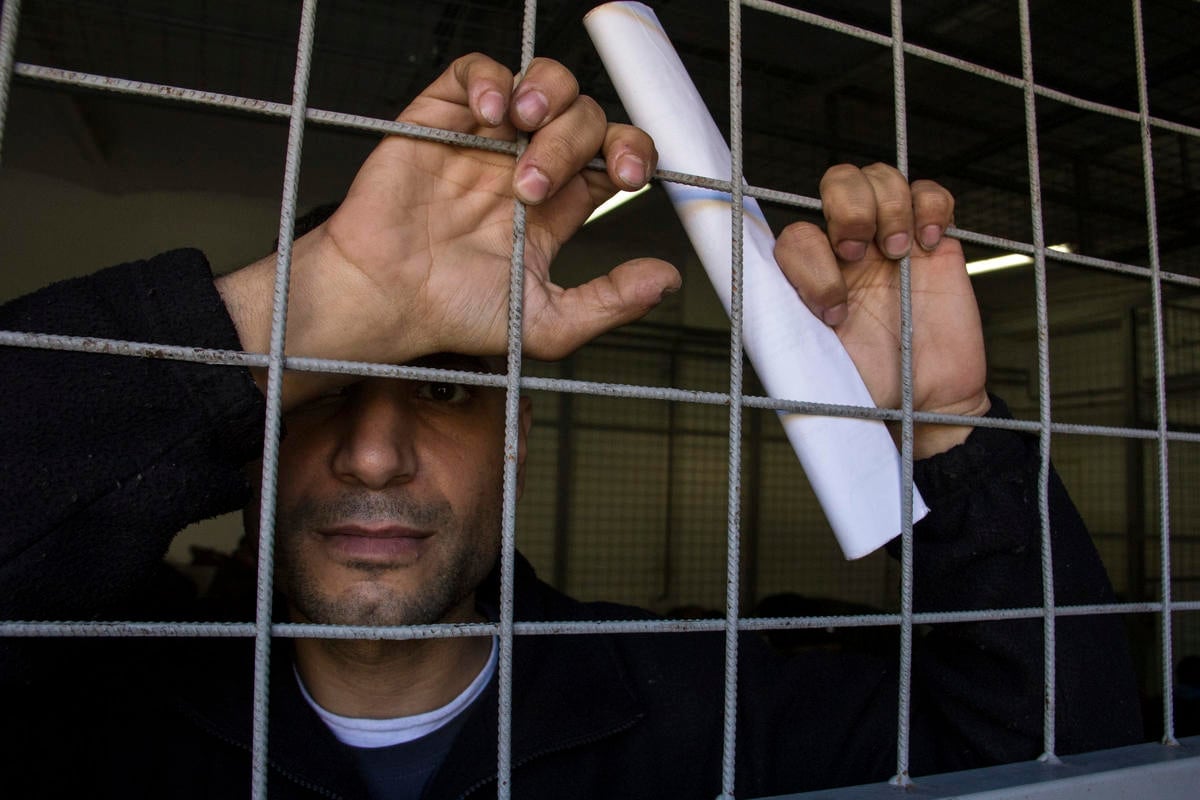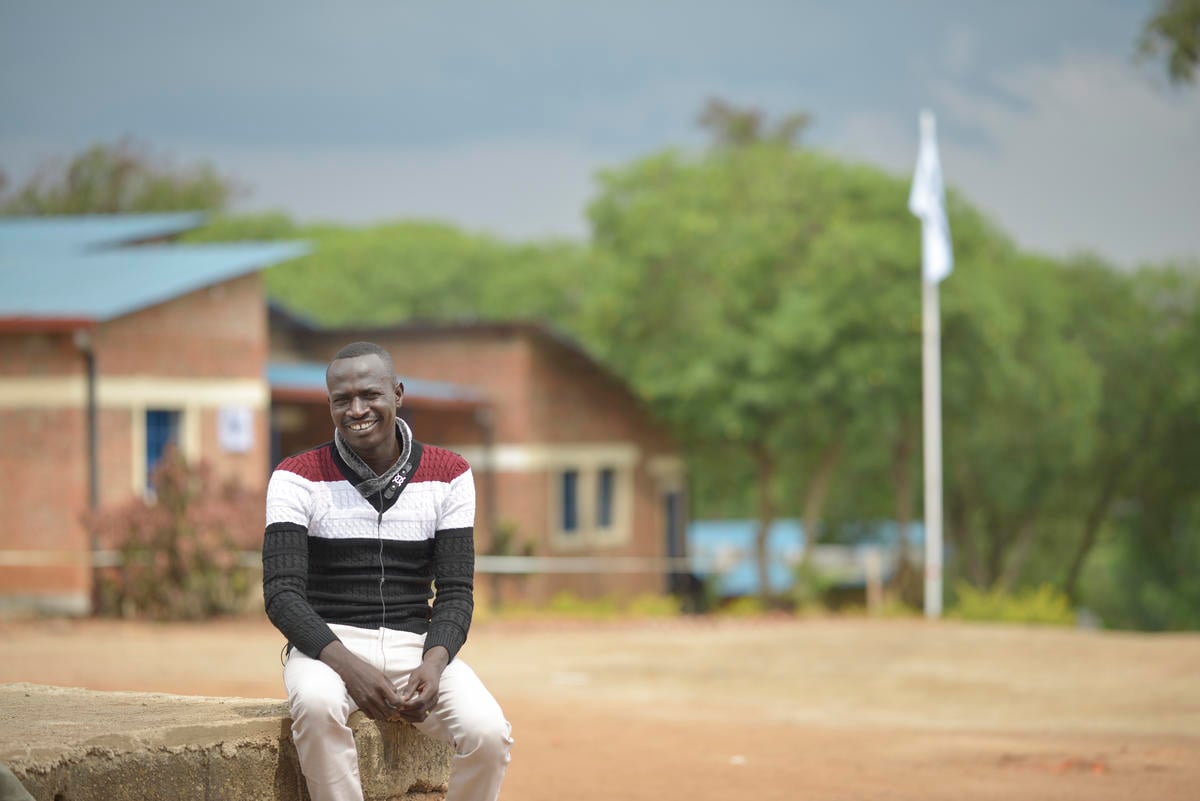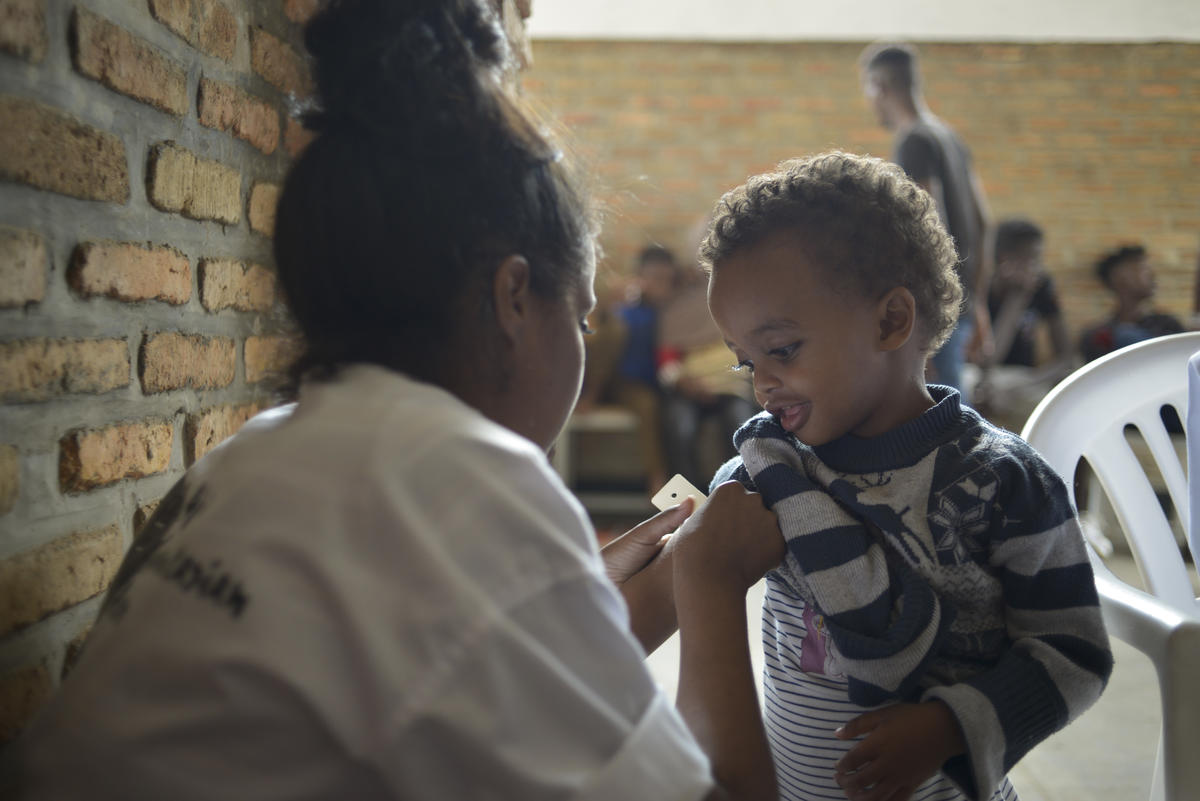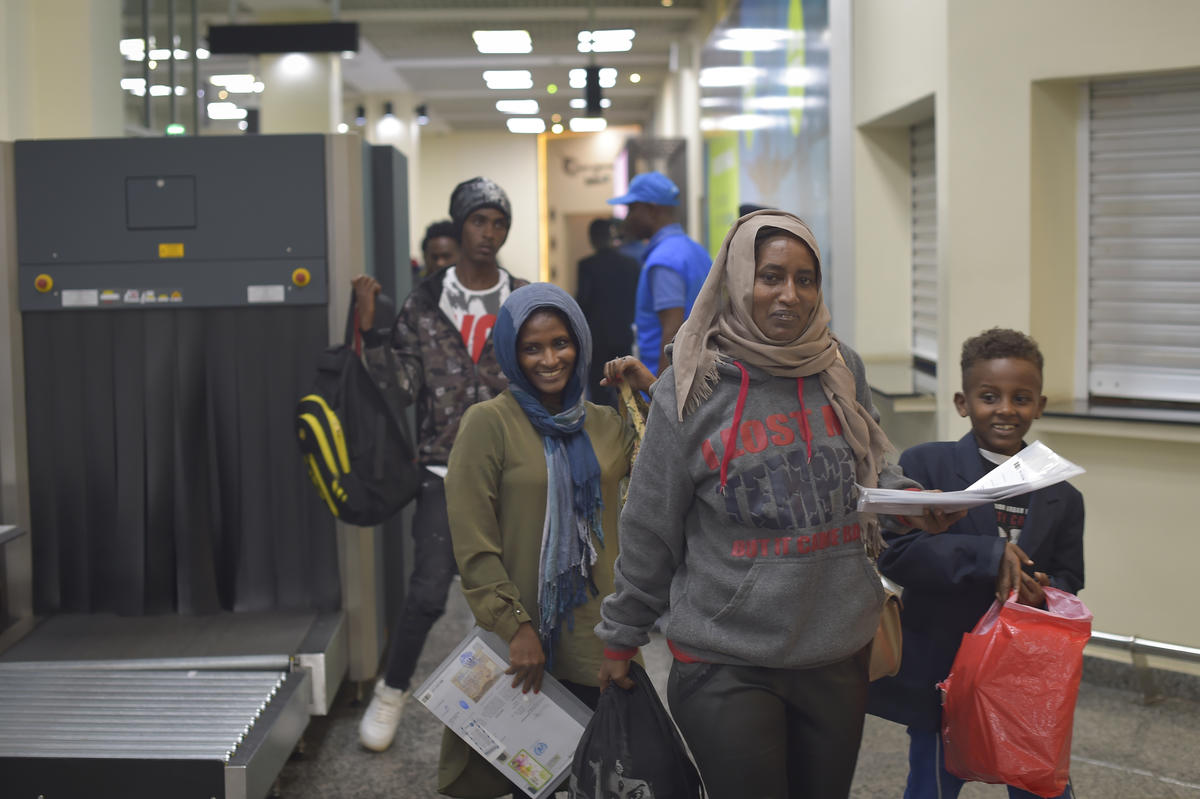First group of refugees evacuated from new departure facility in Libya
First group of refugees evacuated from new departure facility in Libya

UNHCR, the UN Refugee Agency, in coordination with Libyan authorities, evacuated 133 refugees from Libya to Niger today after hosting them at a Gathering and Departure Facility (GDF) in Tripoli which opened on Tuesday.
Most evacuees, including 81 women and children, were previously detained in Libya. After securing their release from five detention centres across Libya, including in Tripoli and areas as far as 180 kilometres from the capital, they were sheltered at the GDF until the arrangements for their evacuation were concluded.
The GDF is the first centre of its kind in Libya and is intended to bring vulnerable refugees to a safe environment while solutions including refugee resettlement, family reunification, evacuation to emergency facilities in other countries, return to a country of previous asylum, and voluntary repatriation are sought for them.
“The opening of this centre, in very difficult circumstances, has the potential to save lives. It offers immediate protection and safety for vulnerable refugees in need of urgent evacuation, and is an alternative to detention for hundreds of refugees currently trapped in Libya,” said UN High Commissioner for Refugees Filippo Grandi.
The centre is managed by the Libyan Ministry of Interior, UNHCR and UNHCR’s partner LibAid. The initiative is one of a range of measures needed to offer viable alternatives to the dangerous boat journeys undertaken by refugees and migrants along the Central Mediterranean route.
With an estimated 4,900 refugees and migrants held in detention centres across Libya, including 3,600 in need of international protection, the centre is a critical alternative to the detention of those most vulnerable.
The centre, which has been supported by the EU and other donors, has a capacity to shelter up to 1,000 vulnerable refugees identified for solutions out of Libya.
At the facility, UNHCR and partners are providing humanitarian assistance such as accommodation, food, medical care and psychosocial support. Child friendly spaces and dedicated protection staff are also available to ensure that refugees and asylum-seekers are adequately cared for.
This Press Release is available here
Video B-roll is available here
For more information on this topic, please contact:
- In Tripoli, Paula Barrachina, [email protected], +218 91 001 7553
- In Tunis, Tarik Argaz, [email protected], +216 29 961 295
- In Amman, Rula Amin, [email protected], +962 790 04 58 49
- In Geneva, Shabia Mantoo, [email protected] +41 79 337 7650









